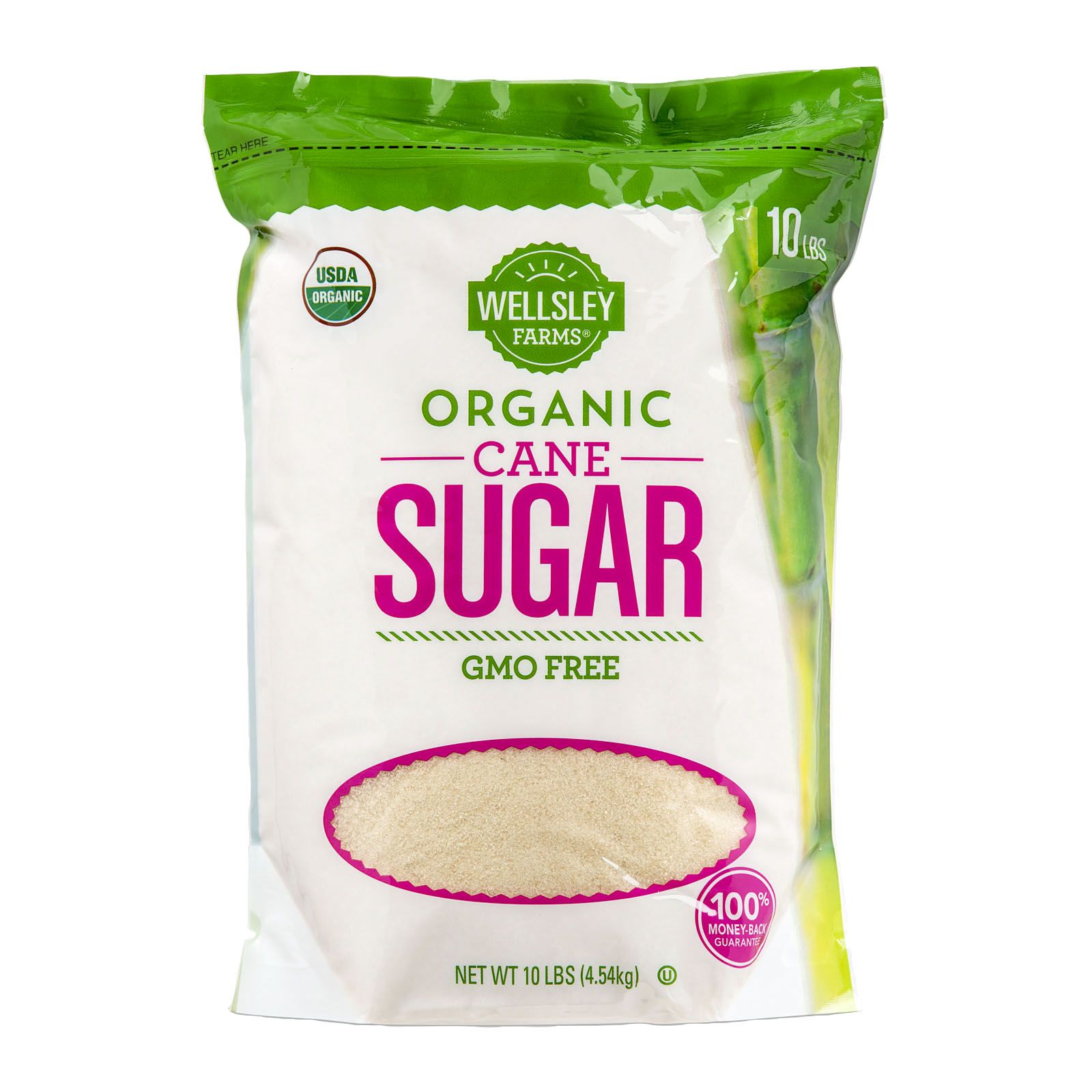The Science Behind Cane Sugar Processing: Exactly How Sweetness is Fine-tuned
The Science Behind Cane Sugar Processing: Exactly How Sweetness is Fine-tuned
Blog Article
An In-depth Introduction of the Health and Economic Effects of Walking Stick Sugar Processing on Neighborhood Neighborhoods
Walking stick sugar handling plays a pivotal function in forming the economic landscape of local neighborhoods, supplying employment possibility and stimulating secondary sectors. Nonetheless, the wellness ramifications related to high sugar consumption can not be ignored, as they add to rising prices of obesity and diabetes. This nuanced dynamic invites an essential examination of how neighborhoods can maximize financial gains while addressing the pressing health challenges they encounter. The exploration of sustainable methods and instructional campaigns might simply hold the secret to resolving these conflicting interests. What methods might communities implement to achieve this equilibrium?
Financial Advantages of Cane Sugar Handling
Walking cane sugar processing offers significant economic advantages that expand past the immediate agricultural sector. The cultivation and handling of sugarcane produce numerous task chances, from farming to production and distribution. This work generation not only sustains regional economic situations however also promotes neighborhood growth by supplying secure income resources for families.
In addition, the sugar market promotes ancillary companies, consisting of transport, tools supply, and packaging services (Cane Sugar Processing). As these industries expand, they contribute to a more robust financial structure, boosting overall community strength. The export possibility of processed walking stick sugar better amplifies financial advantages, positioning areas as affordable gamers in global markets
Financial investment in modern-day handling facilities can bring about raised productivity and efficiency, consequently decreasing waste and maximizing resource usage. This change not just benefits the regional economy however additionally supports sustainability efforts by decreasing ecological influences.
In addition, the income generated from walking stick sugar handling can be reinvested in local framework, education and learning, and medical care, promoting all natural community development. On the whole, the economic advantages of cane sugar handling are diverse, providing a structure for enduring success in farming areas.
Health Threats Connected With Sugar Usage
Too much sugar intake poses substantial wellness threats that require significant attention. High intake of sugarcoated, specifically from processed drinks and foods, has actually been linked to numerous health and wellness problems. One of the most pressing issues is excessive weight, as sweet diet regimens contribute to a raised caloric intake without providing necessary nutrients. This excess can result in metabolic conditions, including type 2 diabetic issues, which has become progressively widespread in both grownups and youngsters - Cane Sugar Processing.
Furthermore, high sugar usage is related to cardio disease. Elevated blood sugar level levels can cause insulin resistance, a forerunner to different heart-related problems. Additionally, sugar can have harmful results on dental health, causing cavities and gum tissue condition, as germs in the mouth grow on sugar, producing acids that erode tooth enamel.
Moreover, emerging research study recommends a prospective web link in between high sugar usage and mental wellness conditions, such as depression and anxiousness. As communities grapple with these health and wellness threats, it comes to be necessary to advertise awareness and encourage much healthier nutritional selections. Attending to sugar consumption is crucial not only for individual health and wellness but also for the total well-being of local areas, highlighting the need for comprehensive public health and wellness strategies.
Environmental Influences of Sugar Production
Often ignored in discussions regarding sugar's effects is the substantial ecological impact of sugar manufacturing. The cultivation of sugarcane typically demands comprehensive land use, resulting in logging, loss of biodiversity, and disruption of local communities. The conversion of woodlands and wetlands into sugar plantations can cause environment devastation, threatening numerous species and changing ecological balance.
Moreover, sugar manufacturing is resource-intensive, consuming considerable quantities of water for irrigation. This can bring about exhaustion of regional water sources, adversely impacting both farming practices and neighborhood access to clean water. Furthermore, using chemical plant foods and pesticides in sugarcane farming can add to dirt degradation and water pollution, as runoff from these chemicals gets in neighboring rivers and lakes, affecting marine life and human wellness.
The environmental impact reaches the processing stage, where energy consumption and waste generation further aggravate ecological issues. Air air pollution from shedding sugarcane fields, in addition to greenhouse gas discharges, add to environment change. Therefore, the environmental ramifications of sugar production warrant significant factor to consider, advising stakeholders to take on more lasting practices to alleviate these damaging impacts on local ecosystems and areas.
Task Production and Community Growth
The ecological difficulties posed by sugar read the article manufacturing are usually counterbalanced by its potential for economic benefits, particularly in job production and area advancement. The cane sugar industry serves as a substantial source of work in lots of backwoods, supplying work throughout various skill levels, from farming labor to processing and distribution roles. This work not only supports private families however additionally contributes to the total economic vitality of regional neighborhoods.
Furthermore, the facility of sugar processing centers promotes ancillary services, such as transportation solutions, devices supply, visit the site and upkeep companies. As these businesses flourish, they create additional work and boost local economies. The profits produced from the sugar market likewise leads to boosted tax obligation incomes, which can be reinvested right into social work such as facilities, education, and health care growth.
Additionally, the sugar market frequently takes part in area growth initiatives, such as supporting neighborhood institutions and health and wellness programs, consequently boosting the high quality of life for citizens. By cultivating strong area connections and promoting financial development, the walking stick sugar handling market plays a vital duty in uplifting regional populations, making it a crucial component of sustainable development strategies in sugar-producing regions.
Balancing Wellness and Economic Development
In navigating the complexities of walking cane sugar handling, a critical difficulty hinges on balancing health and wellness considerations with financial development. The sugar industry substantially adds to local economic climates by creating tasks, boosting associated industries, and raising tax revenues. However, the health ramifications connected with too much sugar consumption can result in chronic illness such as excessive weight, diabetic issues, and cardio issues, which can concern public health systems and lessen workforce efficiency.

Additionally, regulative structures can play a pivotal function in leading industry methods in the direction of even more sustainable and health-conscious methods. By promoting cooperation in between federal government bodies, wellness organizations, and the sugar industry, neighborhoods can browse the duality look at here of health and economic growth, ensuring that the advantages of walking cane sugar processing are equitably shared while prioritizing public health and wellness.
Conclusion
To conclude, the handling of walking cane sugar offers both substantial financial advantages and notable health dangers for neighborhood neighborhoods. While it promotes job creation and stimulates regional development, the associated wellness worries, specifically relating to weight problems and diabetes mellitus, require a cautious balancing act. By advertising responsible consumption and investing in area education and sustainable techniques, it is feasible to optimize economic advantages while lessening negative health effects, therefore making sure a much healthier future for local populations.
In addition, sugar can have destructive effects on dental health and wellness, resulting in tooth cavities and periodontal condition, as germs in the mouth flourish on sugar, producing acids that deteriorate tooth enamel.
Dealing with sugar usage is important not just for individual wellness yet likewise for the general wellness of local communities, highlighting the demand for extensive public health strategies.
Regularly forgotten in conversations concerning sugar's effects is the significant ecological effect of sugar production. The health and wellness implications associated with excessive sugar consumption can lead to chronic illness such as excessive weight, diabetes mellitus, and cardio concerns, which can worry public health systems and decrease labor force performance.

Report this page